
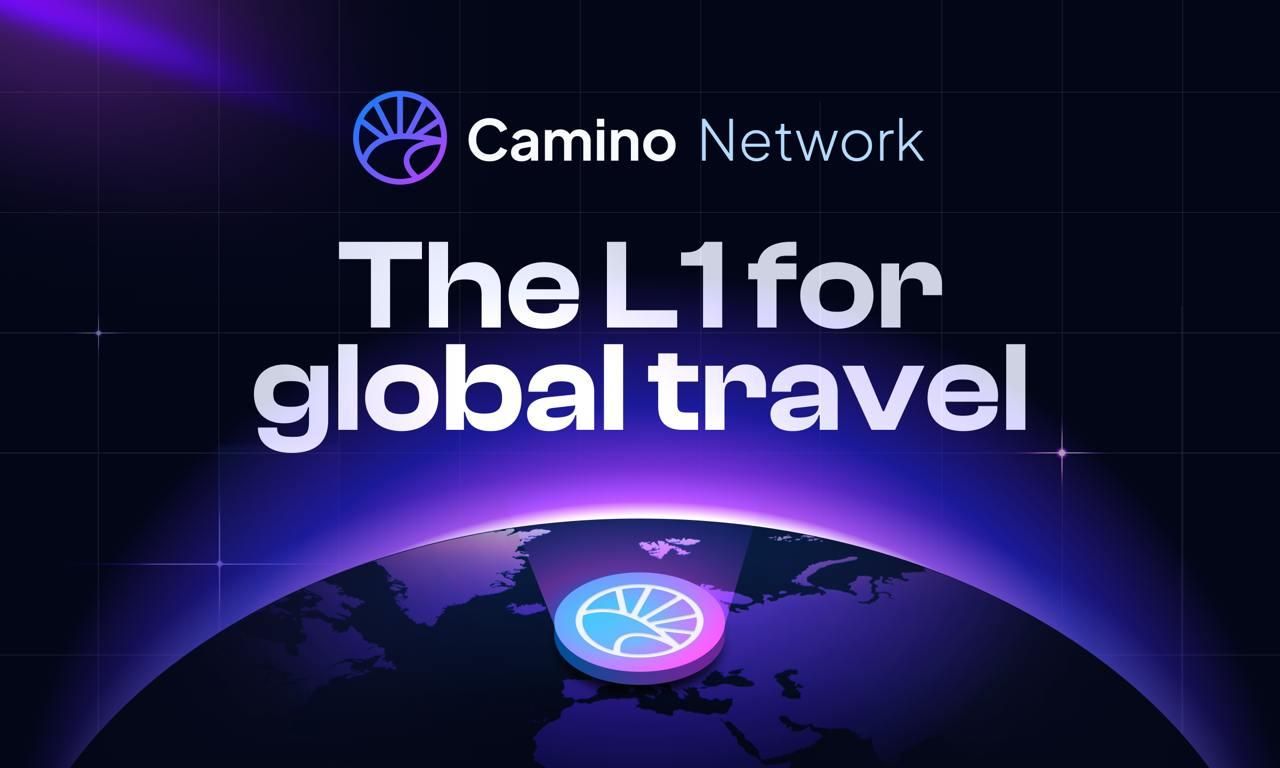
Web3 travel ecosystem Camino Network has had its native token listed by two leading centralized exchanges: MEXC and Gate.io. As the travel-specific L1, Camino Network brings TravelFi, RWA tokenization, and NFT ticketing to the $11tn travel industry. $CAM already powers an ecosystem of over 200 brands, including major tour operators, airlines, car rental companies, and tech giants before its launch.
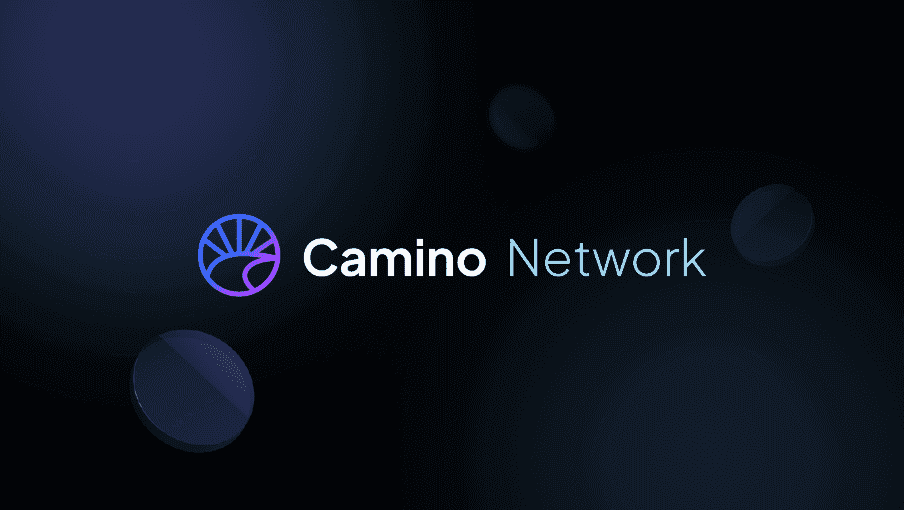
Gate.io has launched the “Startup Project Free Airdrop Program” in order to reward users. Free airdrops for potential blockchain projects will be launched in Startup from time to time, where users can get a variety of tokens via airdrop benefits.
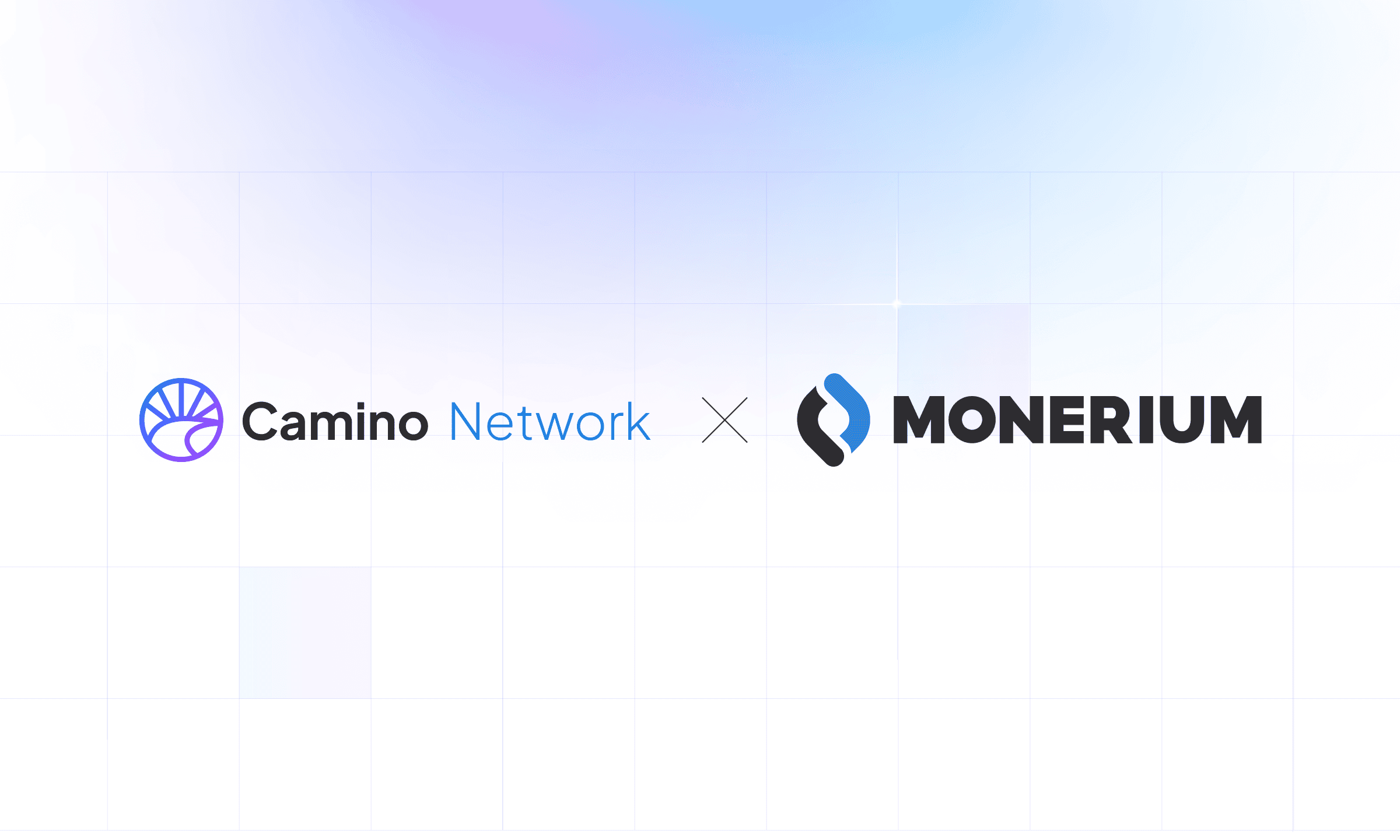
In yet another move bringing crypto and blockchain into the digital mainstream, Monerium and the Camino Network have announced a strategic partnership, making digital asset payments (specifically Euro-denominated settlements) more seamless and streamlined for travelers across the world.

Avata, a leading InsurTech company committed to reshaping travel insurance through decentralized technology, is thrilled to announce the launch of an innovative "Cancel For Any Reason" (CFAR) insurance solution in partnership with Web3 travel platform, Sleap.io. Powered by the L1 Camino Network, this CFAR coverage is available exclusively to Sleap's City NFT holders, introducing an unprecedented level of flexibility, efficiency, and security for modern travellers navigating the decentralized landscape.

Con contratos inteligentes para automatizar procesos como validar disponibilidad, verificar reservas y pagos a proveedores

A travel industry veteran believes blockchain technology can unify the global travel industry, standardize communication protocols and enhance transparency.

Global payment orchestration platform FinMont has announced its partnership with The Lufthansa Group, one of the world’s leading airlines and Camino Network.
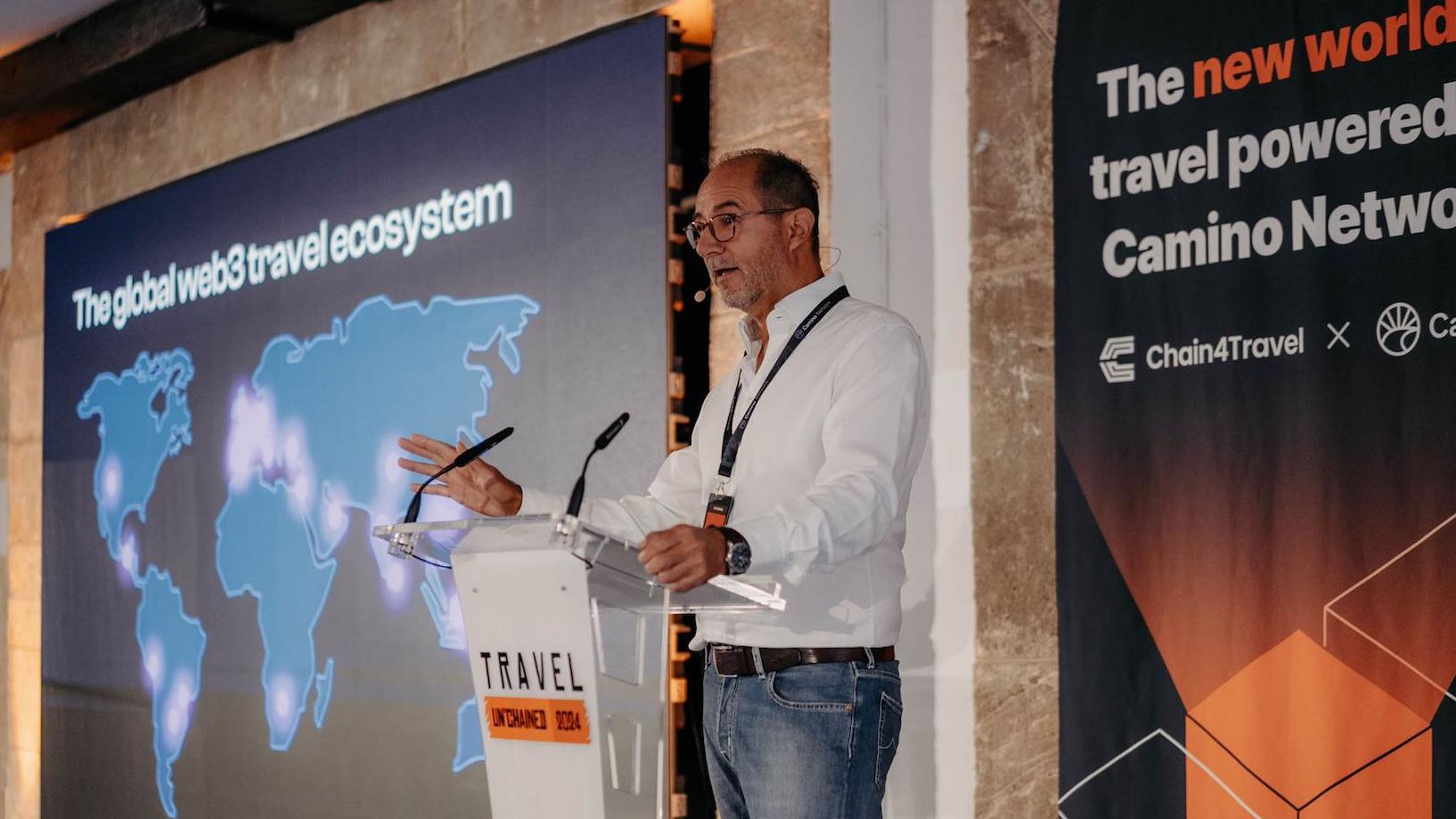
"Stop dreaming, make it happen": Thomas Stirnimann, President of the Camino Network Foundation, called on companies in the travel industry to become active with apps on the tourism Camino blockchain.
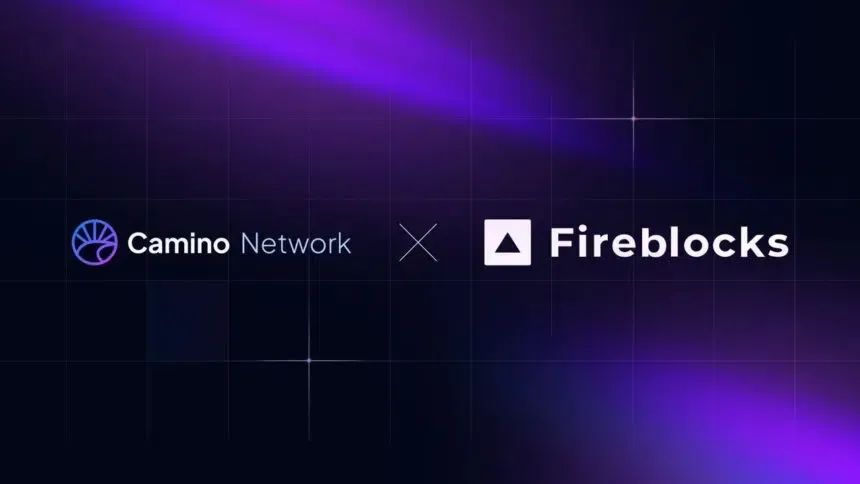
Camino Network, the Layer 1 focused on the travel industry, has announced that it’s integrated Fireblocks, the leading liquidity and security layer. Fireblocks provides enterprise-grade solutions that make it easier to access and secure digital assets and its integration with Camino will enhance the range and security of services available to network users.

Camino Network, the travel industry L1 has been selected for Outlier Ventures' token launch program, Ascent. The collaboration aims to prepare Camino Network for its upcoming token launch at the end of this year.
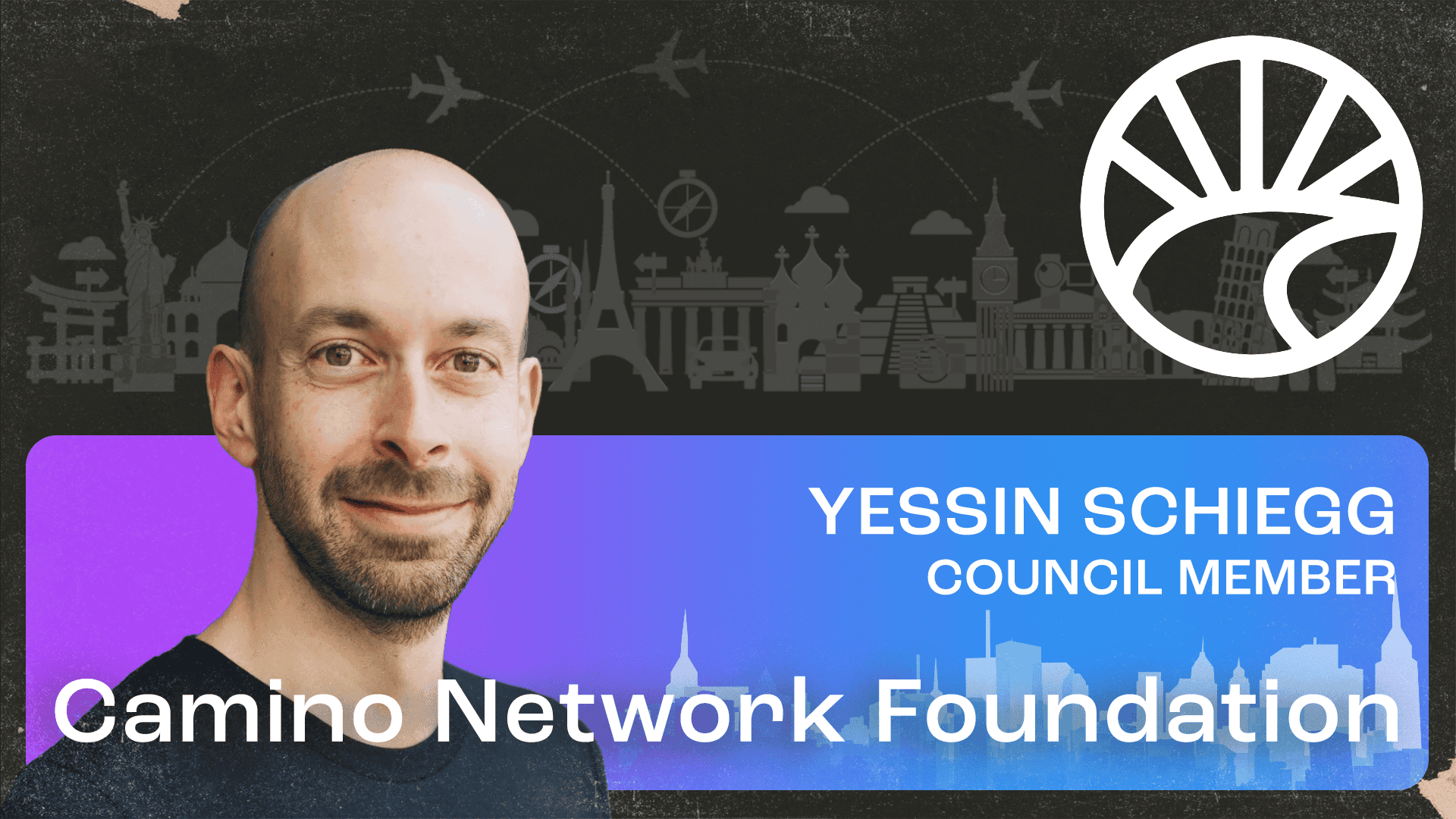
The Camino Network Foundation, a non-profit focused on advancing the L1 Camino Network, has appointed Yessin Schiegg to its Council. Yessin will bring his wealth of experience, which includes working with Vitalik Buterin on Ethereum, to the role.

Blockchain and Web3 reimagine the travel industry by unifying different stakeholders on the same, decentralized communication platform.

Blockchain technology offers improved efficiency, reduced delays and better transparency for the aviation industry.

The traditional “Web2” travel industry lacks a reliable solution to seamlessly integrate local offerings with global platforms, and blockchain is here to change that. VisitorApp, a blockchain-powered ticketing solution, showcases how Web3 can simplify regional travel for both travelers and industry participants.
Decode Travel Hackathon, held at w3.hub in Berlin from April 23-26, 2024, showcased groundbreaking advancements in travel technology with web3 solutions.

With the multi-chain world spinning up new chains at an incredible rate, it can be hard knowing which networks to favor – and which to fade. While the proliferation of L1s, L2s, and even L3s has been dizzying to watch, even the staunchest multi-chain proponents will concede they won’t all go the distance.

The travel industry has similar challenges to a supply chain in terms of international cooperation and a struggle with visibility and verification. However, unlike a chain, the travel industry is an incredibly complex web of companies that provide transportation, food, lodging, tours, and more.
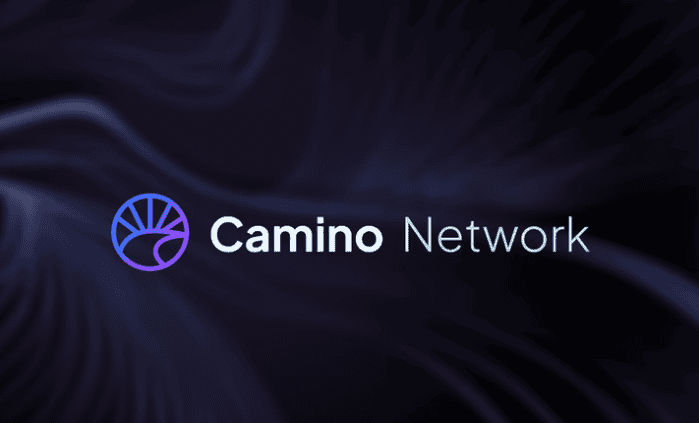
Camino Network Foundation, the non-profit organization fostering the development of Camino Network, is announcing the first public sale of Camino Token (CAM), the native cryptocurrency of the Layer 1 for the global travel industry.

A major theme of the Web3 community has been mass adoption, and a big part of that is creating use cases that show the unique value of blockchain in a clear use case. And this is where industry-centric chains come into play.

Blockchain was the innovation that made this new system of money, known as cryptocurrency, become possible. Blockchain emerged back in 2009 with the launch of Bitcoin itself, and people were quick to realize that this decentralized, peer-to-peer network was the real innovation. Since then, hundreds of blockchain protocols have emerged, expanding the capabilities of decentralized money beyond all recognition.

Web3 has caused those involved to view the world differently. While they are standard foundations now, the thought of having a globally available, borderless and government-less currency would have been unthinkable just a short time ago. With the exception perhaps of gold bars, this has been impossible (however, gold bars are a bit more difficult to transfer instantly). Yet now a thriving Web3 ecosystem has many different exchanges, both centralized and decentralized. Likewise, the role of smart contracts can simply not be overstated. Smart contracts have created a world where trust does not have to be verified because it can be removed from the equation entirely. A neutral party that is completely transparent, has no motivation, nor the ability to change the way it executes the contract. This enables complete strangers from different parts of the world to have complete confidence in a business transaction.

Although the travel industry is said to be in great need of digital innovation, according to Pablo Castillo, the CTO of the blockchain-based travel firm Chain4travel, “aviation is the most obvious sector to innovate with blockchain.” To support this assertion, Castillo, a former group CIO of Hotelplan Group, pointed to the aviation sector’s outdated technological infrastructures as well as its lack of standardized data.
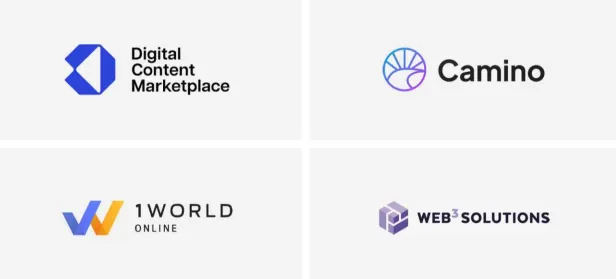
In an unprecedented, opportunity-driven move, four innovative companies in the travel and marketing sectors — Camino Network, initiated by Chain4Travel, DCM Swiss, 1World Online, and Web3-Solutions — have come together to announce a landmark partnership.

Powered by Camino Network, this Web3 booking platform addresses the high fees and the lack of personalization options in the travel industry while also enabling crypto payments.
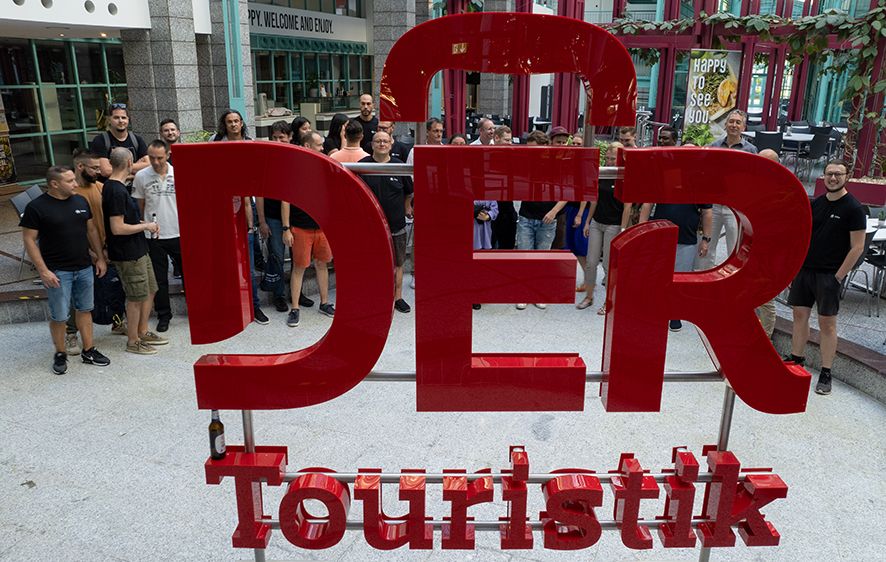
DER Touristik Online and Lufthansa Group have joined forces with the web3 startup Chain4Travel to organize the very first web3 & travel hackathon. This collaboration has yielded remarkable results, producing Proof of Concepts powered by Camino Network technology in a matter of days.

The travel sector is undeniably one of the most dynamic markets in the world. However, due to this space being plagued by archaic booking and privacy processes, it is in need of a major makeover. In this regard, many experts believe that blockchain technology has the power to usher in this change since it is capable of introducing a level of transactional security, operational smoothness, and data relay, not thought to be possible previously.
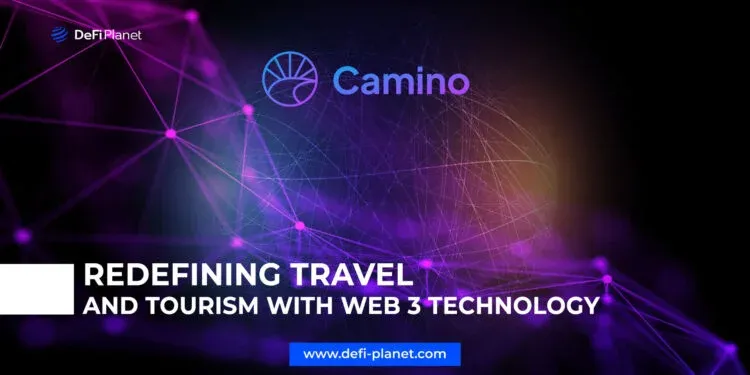
Blockchain has much potential to bring positive changes to the travel and tourism industry, just like it did in finance, but it’s not talked about enough. The travel and tourism industry makes up about 7.6% of the global economy, which is a massive $7 trillion market. Ignoring the potential of new technologies in this sector means missing out on what it could become.

Perhaps what is needed is a use case that leans hard on all the strengths of Web3, that is applicable to a massive, global audience of all demographics, and that can incorporate Web3 almost in the background instead of an “in your face” approach. And this is where the travel industry may just be the Web3 hero we’ve needed.
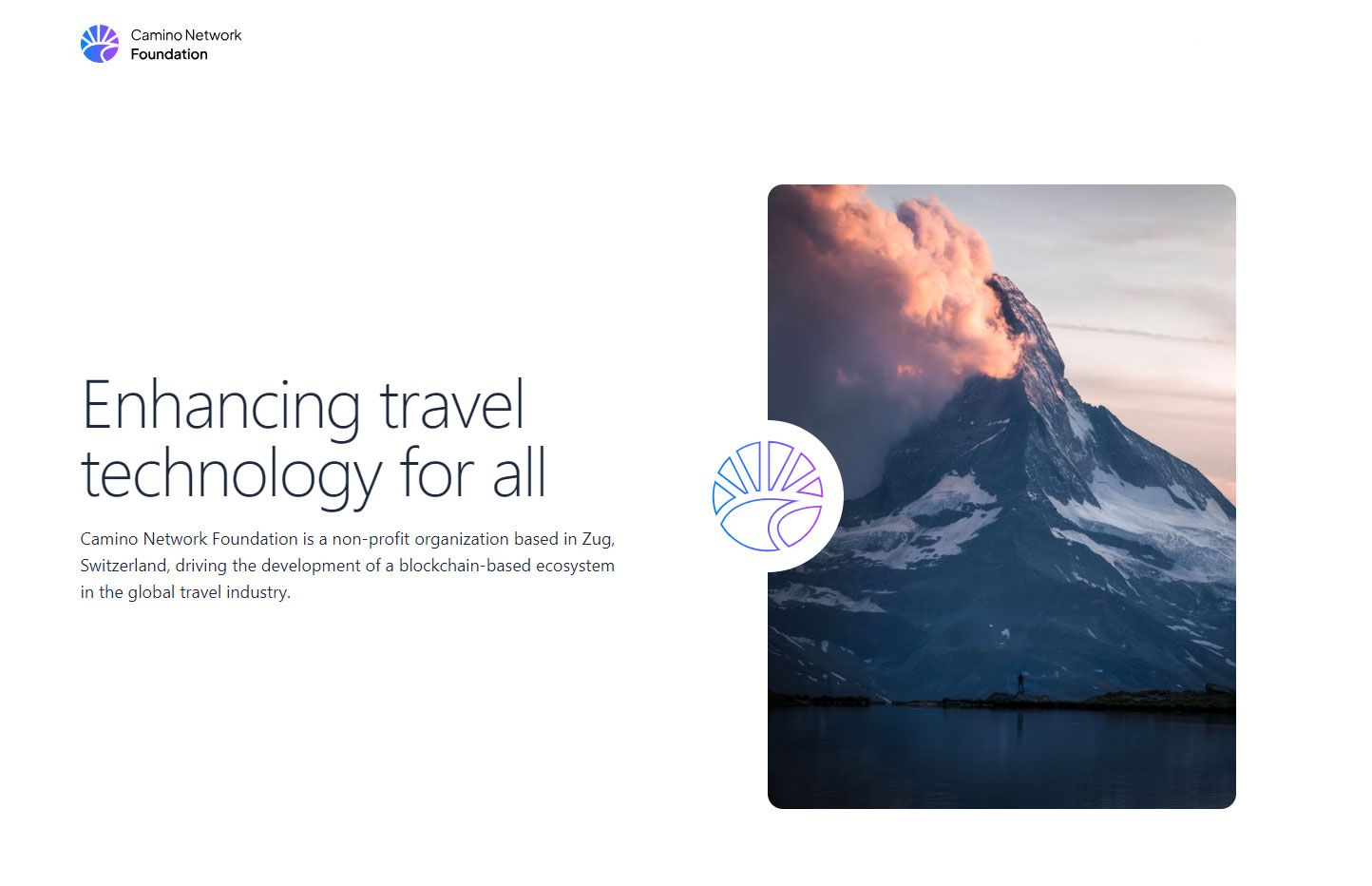
Established in May this year, the Camino Network Foundation has set its sights on supporting the development of the Camino Network, the world’s first Layer 1 blockchain designed exclusively for the travel industry.

The travel industry is a fascinating ecosystem, a bustling marketplace where fierce competition and symbiotic relationships coexist. Unlike other sectors, the travel industry is a conglomerate of various services that must seamlessly integrate to deliver a singular product: an unforgettable experience. This unique dynamic has given rise to innovative solutions like Camino Network, a layer-1 blockchain that fosters collaboration among industry players while maintaining a competitive edge.

With its labyrinth of intermediaries, lack of pricing transparency, and reliance on outdated technology, the travel market seems ripe for a blockchain-driven revolution.
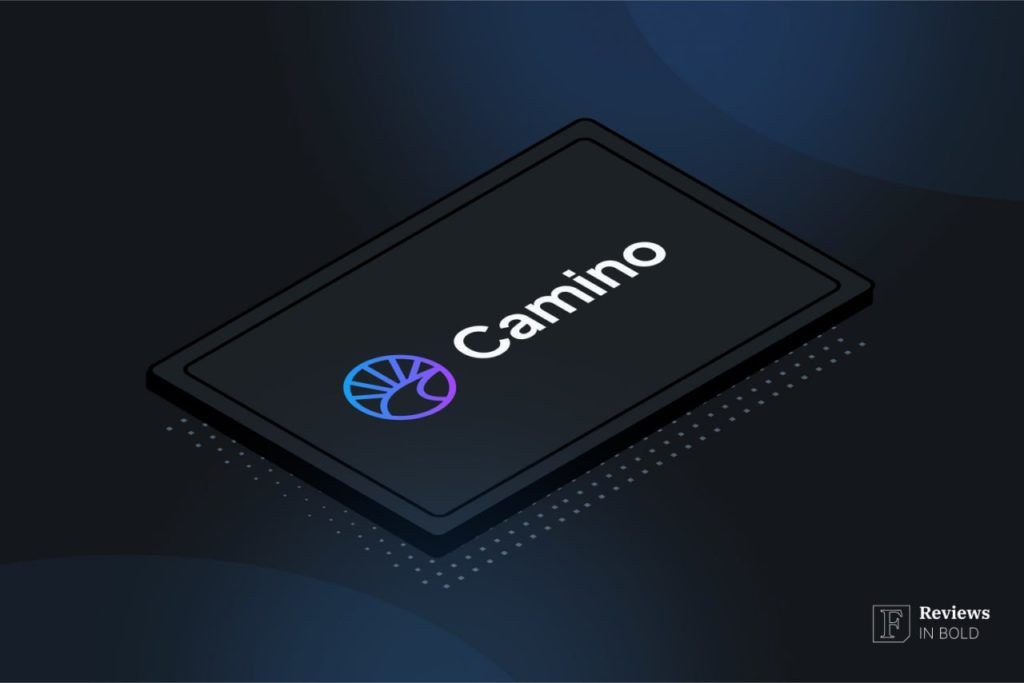
In this review, we explain what Camino Network is, its goals within the travel industry, how it intends to achieve them, and how its technology could permanently change how the travel industry works. That also includes the benefits offered to the project’s users, partners, and node operators. Along the way, we will also consider its pros, cons, and what it has to offer to those who choose to build within its ecosystem.

Founded by travel tech entrepreneur Michael Ros, and utilizing the next-gen Camino Network technology, Sleap.io aims to redefine travel by bridging the gap between traditional hospitality and the expanding world of web3.

There has been a lot of talk in the blockchain industry of the need for “industry-specific” chains that are customized to handle very specialized applications, and that is precisely the focus of Camino Network.

Blockchain holds many promises for the future economy. We picture DeFi platforms, DAO-controlled ecosystems, the Web3 metaverse, Play-to-Earn gaming, and NFT-driven marketplaces. This is all incredibly important, and is getting closer to a mainstream reality every day.

After a new travel-focused blockchain hit the scene, major players in the industry are beginning to pivot to integrate Web3 technology.
The Swiss startup Chain4Travel has announced the launch of the Camino Network mainnet, a public but permissioned blockchain designed for the global travel industry. The company says that the network is backed by major airlines like Lufthansa, Eurowings, Hahn Air, plus a host of other hotel and car rental chains. The project’s goal is to make the travel industry more efficient by using blockchain to build and deploy decentralized applications (dApps) that would improve interoperability between the various participants.

Industry pioneers designed a blockchain for the specific needs of travelers and related businesses in the Web3 era.
One of the first pioneering uses of an entire industry banding together for a common goal on blockchain is the travel industry, and its creation of the Camino Network. This is a chain designed to collectively provide travel services to customers and businesses in a cooperative way, globally, and across all travel services.

There is something profound about transparency. Being able to share what is happening, being able to see what is happening, and being able to ensure that what you see is what you get. This is true in relationships, in public figures, and in business. And while it would be amazing to have our politicians’ actions fully transparent, that might take a bit longer to realize. However, at least in a business environment, technology is enabling true transparency via the use of blockchain.
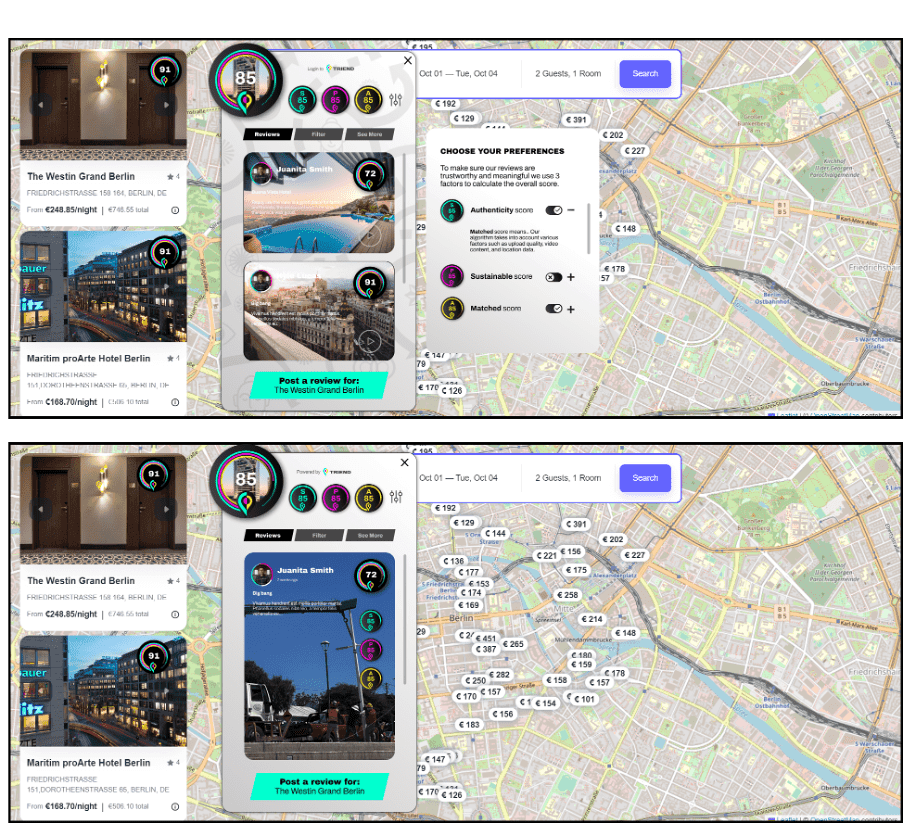
UK based web3 company, Triend, implements a new standard for travel reviews on the consortium Camino blockchain facilitated by Chain4Travel. This new development will enable more transparent and secure reviews, addressing some of the major problems presented by current review systems.
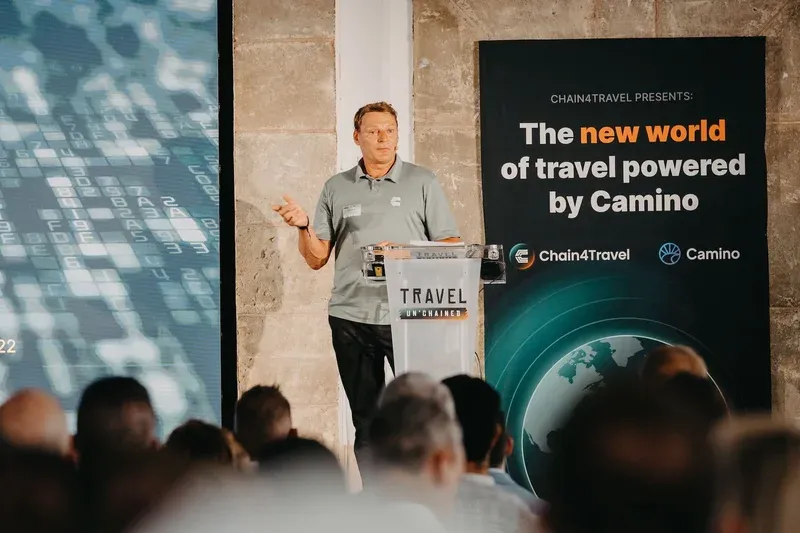
More than 300 companies and private investors from Europe, Asia, North and South America and Australia participated in the sale.

Founded by Peakwork CEO Ralf Usbeck, Chain4Travel is the facilitator of the Camino consortium blockchain and has more than 50 supporters from the travel industry. Travel companies can join the presale of the Camino token until Sept. 23. Down the road, Camino will be operated and managed by travel industry partners. To enable this decentralized approach, Chain4Travel AG will transfer the entire intellectual property rights as well as the financial reserves to a dedicated foundation.

Swiss startup Chain4Travel argues that hotels need to be on the blockchain bandwagon, and just raised its first round of venture capital to help prove it. Based in Baar, about 35 miles from Zurich, the company raised about $4.5 million (4.3 million Swiss francs) to develop blockchain technology to process travel purchases, from hotel rooms to microtransactions like a cup of coffee on an airline flight. Supporting data like maps, Covid policy updates, and regional tourism information will be available in the form of non-fungible tokens, or NFTs, a piece of digital data, stored on a blockchain-based network, that can be bought and sold.

Chain4Travel has raised seed funding of £3.6 million for the development of its blockchain-based travel platform, known as Camino. The Switzerland-based business was launched by Ralf Usbeck, who previously founded TravelTainment and Peakwork, Thomas Stirnimann, former CEO of Hotelplan, and Pablo Castillo, former CIO of Hotelplan.
Camino is a decentralized network powered by the CAM token, driving growth in the global travel industry by utilizing web3 infrastructure. It offers businesses a secure and efficient ecosystem to connect, trade, and innovate.